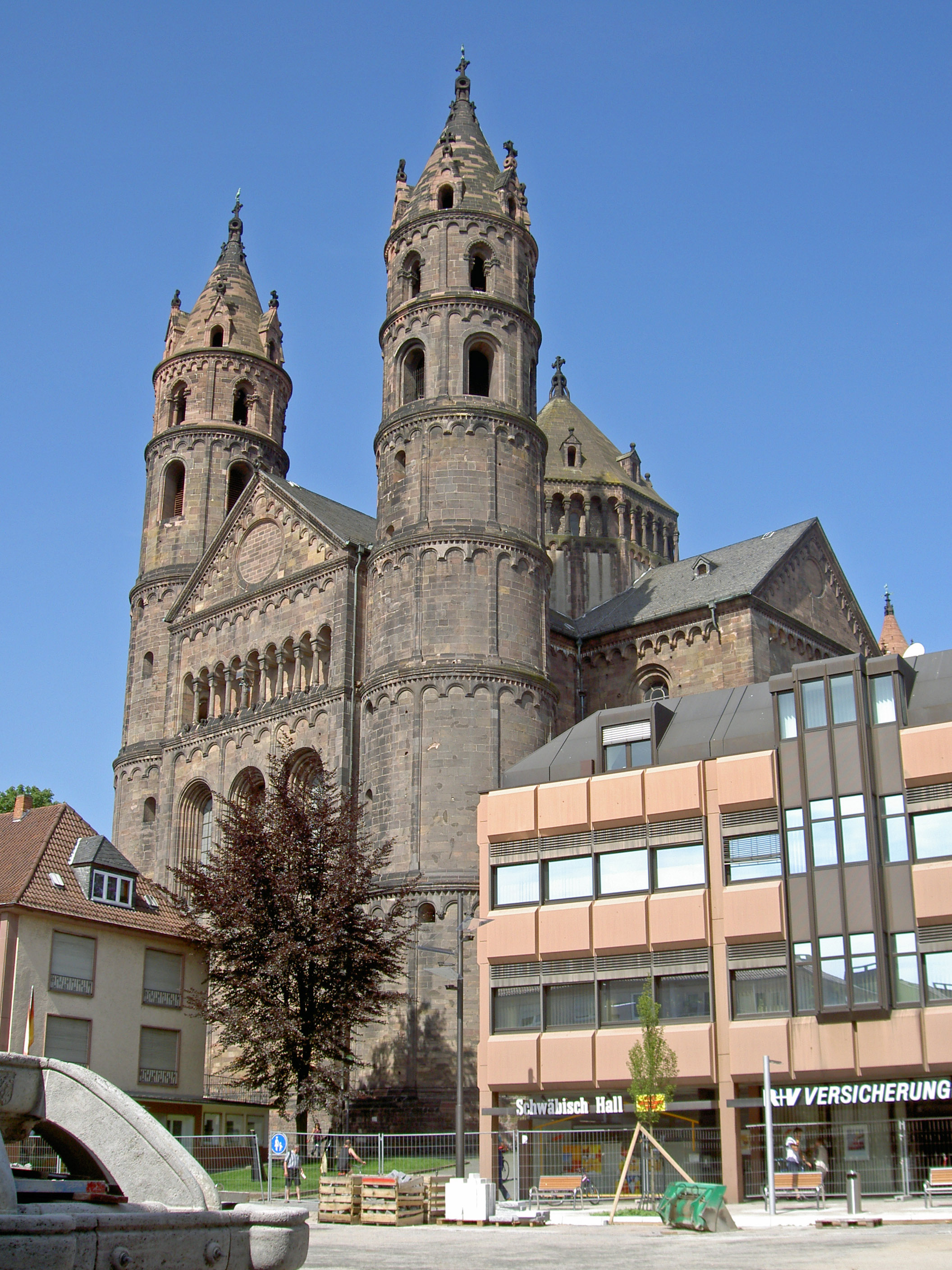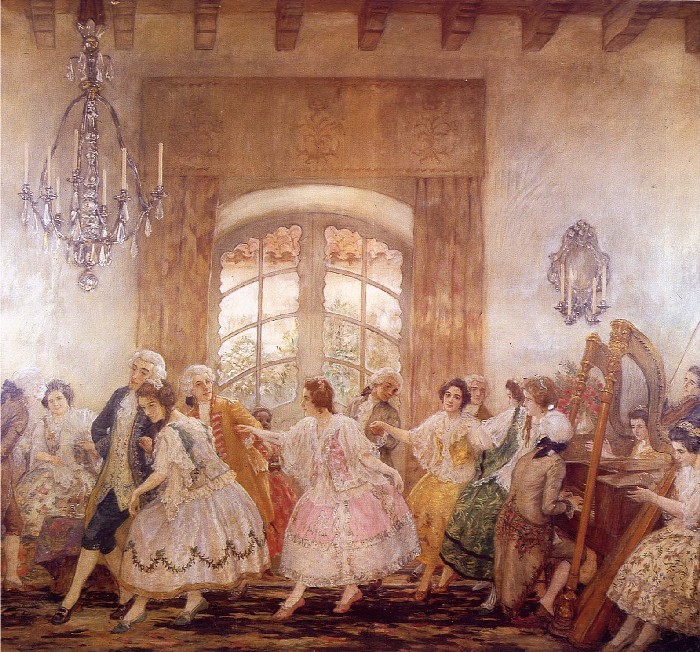|
Pedro De Lisperguer
Pedro de Lisperguer von Wittenberg y Bírlinguer was a German conquistador from Worms who participated in the Conquest of Chile. He is the patriarch of a highly influential family in Colonial Chile. He arrived to Chile in the 1550s after Emperor Charles V authorized him to depart from Peru. Catalina de los Ríos y Lisperguer Catalina de los Ríos y Lísperguer (c. 1604 – January 16, 1665), nicknamed La Quintrala because of her flaming red hair, was an aristocratic 17th-century Chilean landowner and murderer of the Colonial Era. She is famous for her beauty and, a ... was his granddaughter. References {{DEFAULTSORT:Lisperguer, Pedro German conquistadors German emigrants to Chile People from Worms, Germany ... [...More Info...] [...Related Items...] OR: [Wikipedia] [Google] [Baidu] |
Conquistador
Conquistadors (, ) or conquistadores (, ; meaning 'conquerors') were the explorer-soldiers of the Spanish and Portuguese Empires of the 15th and 16th centuries. During the Age of Discovery, conquistadors sailed beyond Europe to the Americas, Oceania, Africa, and Asia, colonizing and opening trade routes. They brought much of the Americas under the dominion of Spain and Portugal. After arrival in the West Indies in 1492, the Spanish, usually led by hidalgos from the west and south of Spain, began building an American empire in the Caribbean using islands such as Hispaniola, Cuba, and Puerto Rico as bases. From 1519 to 1521, Hernán Cortés waged a campaign against the Aztec Empire, ruled by Moctezuma II. From the territories of the Aztec Empire, conquistadors expanded Spanish rule to northern Central America and parts of what is now the southern and western United States, and from Mexico sailing the Pacific Ocean to the Philippines. Other conquistadors took over the Inca ... [...More Info...] [...Related Items...] OR: [Wikipedia] [Google] [Baidu] |
Worms, Germany
Worms () is a city in Rhineland-Palatinate, Germany, situated on the Upper Rhine about south-southwest of Frankfurt am Main. It had about 82,000 inhabitants . A pre-Roman foundation, Worms is one of the oldest cities in northern Europe. It was the capital of the Kingdom of the Burgundians in the early fifth century, hence is the scene of the medieval legends referring to this period, notably the first part of the ''Nibelungenlied''. Worms has been a Roman Catholic bishopric since at least 614, and was an important palatinate of Charlemagne. Worms Cathedral is one of the imperial cathedrals and among the finest examples of Romanesque architecture in Germany. Worms prospered in the High Middle Ages as an imperial free city. Among more than a hundred imperial diets held at Worms, the Diet of 1521 (commonly known as ''the'' Diet of Worms) ended with the Edict of Worms, in which Martin Luther was declared a heretic. Worms is also one of the historical ShUM-cities as a cultural ... [...More Info...] [...Related Items...] OR: [Wikipedia] [Google] [Baidu] |
Conquest Of Chile
The Conquest of Chile is a period in Chilean historiography that starts with the arrival of Pedro de Valdivia to Chile in 1541 and ends with the death of Martín García Óñez de Loyola in the Battle of Curalaba in 1598, and the destruction of the Seven Cities in 1598–1604 in the Araucanía region. This was the period of Spanish conquest of territories, founding of cities, establishment of the Captaincy General of Chile, and defeats ending its further colonial expansion southwards. However the continued attack never improved, thus the Arauco War continued, and the Spanish were never able to recover their short control in Araucanía south of the Bío Bío River. The battle of Guadalgo in 1566 was a huge blow to Spanish morale. Background Chile at the time of the Spanish arrivals According to traditional historiography, the Spanish first came to Central Chile the territory had been under Inca rule for about than 60 years. There are however dissenting views, recent works sugg ... [...More Info...] [...Related Items...] OR: [Wikipedia] [Google] [Baidu] |
Editorial Universitaria
Editorial Universitaria is Chilean university press based in Santiago. It was established in 1947 with funds from private people and from the University of Chile. During its existence, it has published the works of generations influential Chilean scientists and intellectuals. The press publishes, among other things, children's literature Children's literature or juvenile literature includes stories, books, magazines, and poems that are created for children. Modern children's literature is classified in two different ways: genre or the intended age of the reader. Children's .... References 1947 establishments in Chile University of Chile Book publishing companies of Chile Book publishing companies based in Santiago University presses of Chile Publishing companies established in 1947 {{Chile-university-stub ... [...More Info...] [...Related Items...] OR: [Wikipedia] [Google] [Baidu] |
Colonial Chile
In Chilean historiography, Colonial Chile ( es, link=no, La colonia) is the period from 1600 to 1810, beginning with the Destruction of the Seven Cities and ending with the onset of the Chilean War of Independence. During this time, the Chilean heartland was ruled by Captaincy General of Chile. The period was characterized by a lengthy conflict between Spaniards and native Mapuches known as the Arauco War. Colonial society was divided in distinct groups including Peninsulars, Criollos, Mestizos, Indians and Black people. Relative to other Spanish colonies, Chile was a "poor and dangerous" place. Society Societal groups The Chilean colonial society was based on a caste system. Local of criollos (American born Spaniards) enjoyed privileges such as the ownership of encomiendas (Indian labour jurisdictions). Moreover, they were allowed to access some public charges like corregidor or alférez. Mestizos initially made up a small group. In time, they made up the bulk of Chilean ... [...More Info...] [...Related Items...] OR: [Wikipedia] [Google] [Baidu] |
Charles V, Holy Roman Emperor
Charles V, french: Charles Quint, it, Carlo V, nl, Karel V, ca, Carles V, la, Carolus V (24 February 1500 – 21 September 1558) was Holy Roman Emperor and Archduke of Austria from 1519 to 1556, King of Spain (Crown of Castile, Castile and Crown of Aragon, Aragon) from 1516 to 1556, and Lord of the Netherlands as titular Duke of Burgundy from 1506 to 1555. He was heir to and then head of the rising House of Habsburg during the first half of the 16th century, his dominions in Europe included the Holy Roman Empire, extending from Kingdom of Germany, Germany to Kingdom of Italy (Holy Roman Empire), northern Italy with direct rule over the Austrian hereditary lands and the Burgundian Low Countries, and Habsburg Spain, Spain with its southern Italy, southern Italian possessions of Kingdom of Naples, Naples, Kingdom of Sicily, Sicily, and Kingdom of Sardinia, Sardinia. He oversaw both the continuation of the long-lasting Spanish colonization of the Americas and the short-live ... [...More Info...] [...Related Items...] OR: [Wikipedia] [Google] [Baidu] |
Peru
, image_flag = Flag of Peru.svg , image_coat = Escudo nacional del Perú.svg , other_symbol = Great Seal of the State , other_symbol_type = Seal (emblem), National seal , national_motto = "Firm and Happy for the Union" , national_anthem = "National Anthem of Peru" , march = "March of Flags" , image_map = PER orthographic.svg , map_caption = , image_map2 = , capital = Lima , coordinates = , largest_city = capital , official_languages = Peruvian Spanish, Spanish , languages_type = Co-official languages , languages = , ethnic_groups = , ethnic_groups_year = 2017 , demonym = Peruvians, Peruvian , government_type = Unitary state, Unitary Semi-presidential system, semi-presidential republic , leader_title1 = President of Peru, President ... [...More Info...] [...Related Items...] OR: [Wikipedia] [Google] [Baidu] |
Catalina De Los Ríos Y Lisperguer
Catalina de los Ríos y Lísperguer (c. 1604 – January 16, 1665), nicknamed La Quintrala because of her flaming red hair, was an aristocratic 17th-century Chilean landowner and murderer of the Colonial Era. She is famous for her beauty and, according to legend, her cruel treatment of her servants. Her persona is strongly mythified, and survives in Chilean culture as the epitome of the wicked and abusive woman. Life Gonzalo de los Ríos y Encío and his wife, Lisperguer y Flores, both members of the Chilean nobility. Paternal descent Her father was the Gonzalo de los Ríos y Ávila, a Spanish soldier who fought in the Conquest of Chile, and María Encío, the sister of Juan Encío, who was one of the financiers of the expedition of Pedro de Valdivia. Gonzalo de los Ríos y Encío was an exalted landowner of Santiago's colonial society. He held the rank of general in the Royal Army and was a maestre de campo who served as mayor of Santiago in 1611, 1614 and 1619. He was also ... [...More Info...] [...Related Items...] OR: [Wikipedia] [Google] [Baidu] |
German Conquistadors
German(s) may refer to: * Germany (of or related to) ** Germania (historical use) * Germans, citizens of Germany, people of German ancestry, or native speakers of the German language ** For citizens of Germany, see also German nationality law **Germanic peoples (Roman times) * German language **any of the Germanic languages * German cuisine, traditional foods of Germany People * German (given name) * German (surname) * Germán, a Spanish name Places * German (parish), Isle of Man * German, Albania, or Gërmej * German, Bulgaria * German, Iran * German, North Macedonia * German, New York, U.S. * Agios Germanos, Greece Other uses * German (mythology), a South Slavic mythological being * Germans (band), a Canadian rock band * "German" (song), a 2019 song by No Money Enterprise * ''The German'', a 2008 short film * "The Germans", an episode of ''Fawlty Towers'' * ''The German'', a nickname for Congolese rebel André Kisase Ngandu See also * Germanic (other) * ... [...More Info...] [...Related Items...] OR: [Wikipedia] [Google] [Baidu] |
German Emigrants To Chile
German(s) may refer to: * Germany (of or related to) **Germania (historical use) * Germans, citizens of Germany, people of German ancestry, or native speakers of the German language ** For citizens of Germany, see also German nationality law **Germanic peoples (Roman times) * German language **any of the Germanic languages * German cuisine, traditional foods of Germany People * German (given name) * German (surname) * Germán, a Spanish name Places * German (parish), Isle of Man * German, Albania, or Gërmej * German, Bulgaria * German, Iran * German, North Macedonia * German, New York, U.S. * Agios Germanos, Greece Other uses * German (mythology), a South Slavic mythological being * Germans (band), a Canadian rock band * "German" (song), a 2019 song by No Money Enterprise * ''The German'', a 2008 short film * "The Germans", an episode of ''Fawlty Towers'' * ''The German'', a nickname for Congolese rebel André Kisase Ngandu See also * Germanic (other) * Germa ... [...More Info...] [...Related Items...] OR: [Wikipedia] [Google] [Baidu] |




